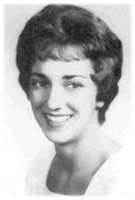Yesterday a lady told me her sister-in-law moved back to Europe when her children got old enough for school saying, "they had never had a school shooting in my native country."
Dear God:
Why didn't you save the school children at:
Moses Lake , Washington 2/2/96
Bethel , Alaska 2/19/97
Pearl , Mississippi 10/1/97
West Paducah , Kentucky 12/1/97
Stamp, Arkansas 12/15/97
Jonesboro , Arkansas 3/24/98
Edinboro , Pennsylvania 4/24/98
Fayetteville , Tennessee 5/19/98
Springfield , Oregon 5/21/98
Richmond , Virginia 6/15/98
Littleton , Colorado 4/20/99
Taber , Alberta , Canada 5/28/99
Conyers , Georgia 5/20/99
Deming , New Mexico 11/19/99
Fort Gibson , Oklahoma 12/6/99
Santee , California 3/ 5/01
El Cajon , California 3/22/01 and
Blacksburg, Virginia 4/16/07
Sincerely,
Concerned Student
-----------------------------------------------------
Reply:
Dear Concerned Student:
I am not allowed in schools.
Sincerely,
God
----------------------------------------------------------
How did this get started?...
-----------------
Let's see,
I think it started when Madeline Murray O'Hare complained
she didn't want any prayer in our schools. /\...And we said, OK..
------------------
Then, someone said you better not read the Bible in school,
the Bible that says "thou shalt not kill, "thou shalt not steal, "
and "love your neighbors as yourself," ...And we said, OK...
------------------
Then someone said
teachers and principals better not discipline our children when they misbehave.
And the school administrators said no faculty member in this school better touch a student when they misbehave because we don't want any bad publicity, and we surely don't want to be sued.
And we accepted their reasoning...
------------------
Then someone said,
let's let our daughters have abortions if they want,
and they won't even have to tell their parents. ...And we said, that's OK
------------------
Then some school board member said,
since boys will be boys
and they're going to do it anyway,
let's give our sons all the condoms they want,
so they can have all the fun they desire,
and we won't have to tell their parents they got them at school.
And we said, that's another great idea...
------------------
Then some of our top elected officials said
it doesn't matter what we do in private as long as we do our jobs.
And we said,
it doesn't matter what anybody,
does in private as long as we have jobs and the economy is good....
------------------
And someone else took that appreciation a step further
and published pictures of nude children
and then stepped further still by
making them available on the Internet.
And we said, everyone's entitled to free speech....
------------------
And the entertainment industry said,
let's make TV shows and movies that promote
profanity, violence and group sex...
And let's record music that encourages
rape, drugs, murder, suicide, and satanic themes...
And we said,
it's just entertainment
and it has no adverse effect
and nobody takes it seriously anyway,
so go right ahead.
------------------
Now we're asking ourselves
why some of our children have no conscience,
why they don't know right from wrong,
and why it doesn't bother them to
kill strangers, classmates or even themselves.
------------------
Undoubtedly,
if we thought about it long and hard enough,
we could figure it out.
I'm sure it has a great deal to do with...
"WE REAP WHAT WE SOW,"

 Birthdays were always special in our household. Alhough the gifts were usually inexpensive, there was always a gift, a homemade birthday cake with candles and always singing! The honoree was awakened with the family singing, Happy Birthday to you."
Birthdays were always special in our household. Alhough the gifts were usually inexpensive, there was always a gift, a homemade birthday cake with candles and always singing! The honoree was awakened with the family singing, Happy Birthday to you." 






 The present name of Wesleyan College was adopted in 1919.
The present name of Wesleyan College was adopted in 1919.

 Aubrey said his Dad replied, "Uncle Wilson, I will go to share cropping before I will move my family to a Mill town." Aubrey told about his father's continued refusal to move his family and have his children raised in a mill town when cotton farmers all over the South during the Great Depression and the Boll weevil epidemic were giving up on trying to make a living in farming.
Aubrey said his Dad replied, "Uncle Wilson, I will go to share cropping before I will move my family to a Mill town." Aubrey told about his father's continued refusal to move his family and have his children raised in a mill town when cotton farmers all over the South during the Great Depression and the Boll weevil epidemic were giving up on trying to make a living in farming.

 I also remember getting a new pair of black patent leather slippers while we lived on Ivy Street. I was walking down the street holding Mary's hand. I must have been about four and Mary fourteen. I could hardly walk for looking down at my new shoes.
I also remember getting a new pair of black patent leather slippers while we lived on Ivy Street. I was walking down the street holding Mary's hand. I must have been about four and Mary fourteen. I could hardly walk for looking down at my new shoes.












